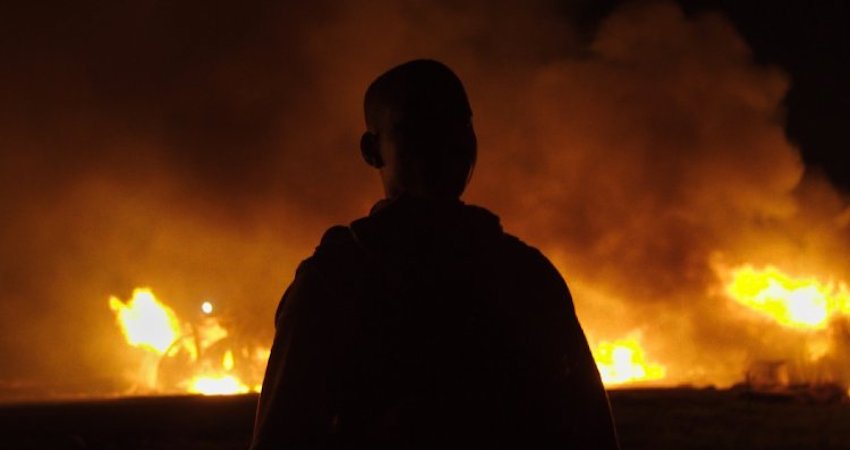QUICK SNAP: LIVE FROM TALLINN
A blind man and a deaf woman fall for each other in Blind Love, a Kenyan slice-of-life comedy-drama with oodles of oddball charm. Injecting great humour and verve into its depiction of disabled life, it enlivens and surprises the audience right until the final scene.
Brian (Mr. Legacy) is unable to see. His seeing dog has just died, unceremoniously run over by a car. Abel (Jacky Amoh) is deaf, and is tasked with taking him home one day. Despite their disabilities, they find innovative ways to communicate, empathetically and intuitively portrayed by both Legacy and Amoh. Brian then realises that if they drink a magic spirit, they are able to communicate unhindered in their dreams, caught in black-and-white fantasy sequences. But the liquor is as much a gift as a curse, resulting in many unintended consequences.
Director Damian Hauser directs, edits, shoots and composes the music, keeping a close authorial control of the film’s tone; which appears to freewheel along while underpinning the narrative with a much darker narrative pull. As it uses such poppy filmmaking method to tackle serious themes, Blind Love almost runs the risk of trivialising what it wants to portray, but eventually brings it all together in the shocking finale. It’s even more impressive when you realise that Swiss director Hauser was born in 2001.
It shows that violence begets violence, spurred on by ignorance, jealousy, lust and copious amounts of liquor. Neither man (alcoholic, ignorant, unfaithful) or woman (jealous, scornful, scheming) come out of it well, the film even ending with a postscript asking why people continue to have children when there is so much suffering in the world. Sprinkled in with a little black magic, it asks whether people are in control of what they do or if they become possessed by their emotions. This is not the hipster capital Nairobi, as seen in Rafiki (Wanuri Kahiu, 2018), but a place seemingly lost in time, with little government help, as seen when people take justice into their own hands.
It’s not a pretty depiction of rural Kenya, but the filmmaking has a vital feel at odds with its themes, mixing widescreen with academy ratio, long, detached pans with frantic handheld shots. It finds plentiful ways to move between past and present with ease, as well as smartly switching between plot and subplot before finding a truly tragic way to bring these two together. The non-actors and countryside setting keeps an authentic vibe, with Hauser able to coax out great performances that just feel like people living their own lives.
It’s great to see more sub-Saharan African stories making it to major European film festivals and that co-productions with countries like Switzerland are making them happen. Blind Love is the kind of small yet affecting film you want to find at a fest; surprising, unconventional and filled with a fine personal filmmaking touch.
Blind Love plays in the First Feature section of the Tallinn Black Nights Film Festival, running from 12-28th November.









